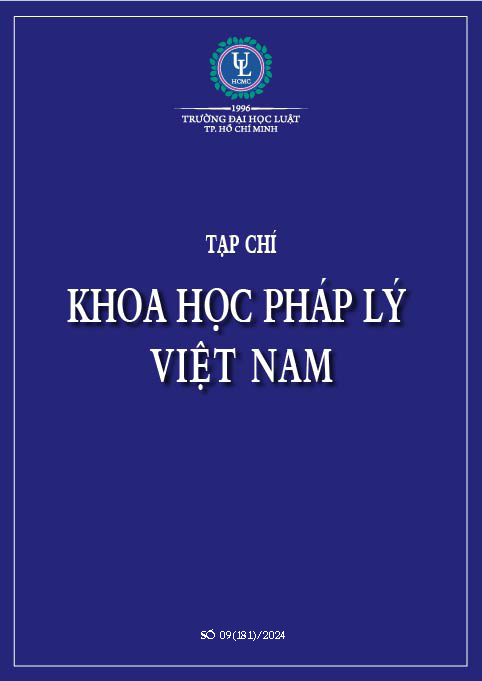THUẾ GIÁ TRỊ GIA TĂNG ĐỐI VỚI MÔ HÌNH KINH TẾ CHIA SẺ TRONG LĨNH VỰC VẬN TẢI THEO PHÁP LUẬT VƯƠNG QUỐC ANH VÀ GỢI MỞ CHO VIỆT NAM
DOI:
https://doi.org/10.70236/tckhplvn.120Từ khóa:
mô hình kinh tế chia sẻ, thuế giá trị gia tăng, nền kinh tế chai sẻTóm tắt
asasaas
Tải xuống
Tài liệu tham khảo
[1] Uber v Aslam case, 2021
[2] Uber Britannia Ltd v Sefton Metropolitan Borough Council
[3] Pauline Beck, “The feasibility of measuring the sharing economy: November 2017 progress update”, UK Government, 2017
[4] Gill Carson, “Five key sharing economy sectors could generate £9 billion of UK revenues by 2025”, PricewaterhouseCoopers, 2014
[5] Sanjay Gautam, “Navigating the Legal Landscape: Bolt Ltd vs HMRC in the TOMS Saga”, UK Property Accountants, 2024
[6] Thanh Lâm, “Miếng bánh thị trường xe công nghệ sẽ về tay ai”, Chuyên trang Sài Gòn Giải Phóng Đầu Tư Tài Chính, 2024 [trans: Thanh Lam, “Who will get the technology car market pie?”, the Saigon Giai Phong Financial Investment, 2024]
[7] Luke Michaelides, Sue Ost and Joyce Luo, “The feasibility of measuring the UK sharing economy: September 2023 research update”, UK Government, 2023
[8] The Institute for Fiscal Studies, “IFS revenue composition spreadsheet”, The Institute for Fiscal Studies, 2024
[9] UK Government, “Charge, reclaim and record VAT”, OGL, 2024
[10] UK Goverment, “How VAT Works”, OGL, 2024
[11] Adam Victor, “VAT: A brief history of tax”, The Guardian, 2021






